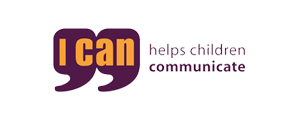Auditory processing
Auditory processing is how the brain identifies and understands sound information. For there to be successful auditory processing children require certain skills. Skills such as the ability to detect a sound or to differentiate between sounds, and to tune into one particular sound or noise. It also includes being able to give meaning to certain sounds, understanding longer utterances and to be able to self-regulate your own speech.
Our speech and language therapists can assess your child’s skills to determine the impact of the auditory processing difficulties on your child’s understanding of language and speech sounds. Our speech and language therapists will use the information from the assessment to increase your child’s understanding and communicative skills.
Speech and language therapy aids children with auditory processing difficulties to improve their understanding and overall communication skills through a variety of strategies and games. As well as providing changes in the child’s communicative environment to increase their skill set.
What is auditory processing?
Auditory processing is recognised as a pre-verbal skill. As children learn to recognise the voice of an adult or sibling and differentiate it from other sounds, a long time before they can understand what is being said. It is needed in communication as the child needs to have the ability to differentiate between sounds, concentrate specifically on the voice of the speaker and what is being said.
There are four main aspects of auditory processing include:
Auditory awareness
- Ability to detect a sound.
- Ability to locate where the sound is coming from.
- Ability to listen to the most important sound regardless of the sounds in the background.
Auditory discrimination
- Ability to differentiate between sounds heard in the environment e.g. speech and animal noises.
- Ability to differentiate between individual speech sounds.
- Ability to distinguish the differences in other aspects of speech such as volume, pitch, tone.
Auditory identification
- Ability to attach meaning to the sounds or speech heard, e.g. quacking = ducks.
- Ability to monitor and just your own speech by responding to hearing yourself speak, e.g. adjusting your volume after you realise you are shouting.
- Ability to identify different phonemes and blend, segment and manipulate them to make different sounds.
Auditory Comprehension
- Ability to understand longer utterances.
- Ability to understand more complex utterances.
- Ability to have a conversation.
- Ability to follow directions.
- Ability to follow a narrative.
- Ability to recall the information you have heard not just for the immediate time but after a prolonged period too.
- Ability to process, understand, remember, recall, and categorise language in order to increase learning and communication skills.
Impact of auditory processing difficulties on receptive language
Difficulties with auditory processing can impact upon a child’s receptive language skills, for example:
- If a child struggles to differentiate between sounds in the environment and the voice of speaker, they may not be aware they are being spoken to.
- If the child struggles to tune into the voice of the speaker as they can’t filter out the background noises, they may again not be aware they are being spoken to.
- It may become difficult for them to understand what is being said if they can’t prioritise the voice of the person who is speaking to them.
- It the child can’t differentiate between similar sounding speech sounds, they may misunderstand what is being said to them.
Speech and language therapists can help children who struggle with auditory processing by providing them with strategies to help discriminate between sounds. Our speech and language therapists also work with the child’s family and school to create a communicative environment that is adapted to the child’s needs.
Next steps
If you think your child has poor auditory processing skills that are impacting your child’s understanding, email office@sltforkids.co.uk call 0330 088 2298 to speak to one of our speech and language therapists.








